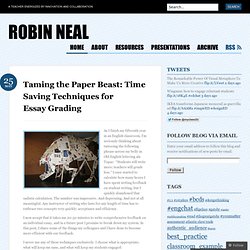

65 Books You Need To Read In Your 20s. Inventing Abstraction. The Western Tradition. 1.

The Dawn of History The origins of the human race are traced from anthropoid ancestors to the agricultural revolution. 2. The Ancient Egyptians Egyptian irrigation created one of the first great civilizations. 3. Mesopotamia Settlements in the Fertile Crescent gave rise to the great river civilizations of the Middle East. 4. 5. 6. 7. 8. 9. 10. 11. 12. 13. 14. 15. 16. 17. Gimmicks. The word "gimmick" has derogatory connotations.

It often suggests something cheap, tricky, fast, without substance, even immoral. There are intelligent people who attack the use of gimmicks or devices in teaching imaginative writing, on the grounds that such devices encourage kids to be thoughtless smart alecks, witty at the expense of substance, satisfied with a glib surface but insensitive to depth of feeling. Such critics usually emphasize the importance of meaning. Were there a School of Gimmicks, its members might retort that the Defenders of Meaningfulness tend to be boring creeps who confuse self-expression with value, that the most sincere statement of feeling is no better than any other sincere statement, that what makes the difference in creative expression is style. In other words, concern yourself with style, and everything else will take care of itself. These are two extreme points of view, of course. Found Poems So, how to proceed in the classroom?
Challenge Verse Explosions. Les Mean Girls. Slow Reading: An Antidote for Fast World? - Newsweek and The Daily Beast. What will you do with an English degree? Plenty. By Michael Bérubé, Special to CNN Editor’s note: Michael Bérubé is the Edwin Erle Sparks Professor and director of the Institute for the Arts and Humanities at Pennsylvania State University, and the 2012 president of the Modern Language Association.

(CNN) - Almost every college student who considers majoring in English - or French, or philosophy, or art history - inevitably hears the question: "What in the world are you going to do with that? " The question can come from worried parents, perplexed relatives, or derisive, incredulous peers, but it always implies that degrees in the humanities are “boutique” degrees, nice ornaments that serve no practical purpose in the real world. After all, who needs another 50-page honors project on the poetry of Charles Baudelaire? Well, strange as it may sound, if you’re an employer who needs smart, creative workers, a 50-page honors project on a 19th century French poet might be just the thing you want to see from one of your job applicants. AdviceToWriters - Advice to Writers. Grading essays: Human vs. machine. By Jordan Bienstock, CNN (CNN) No one thinks twice about using machines to grade multiple-choice tests.

For decades, teachers – and students – have trusted technology to accurately decipher which bubble was filled in on a Scantron form. But can a machine take on the task of evaluating the written word? A recent study conducted by the College of Education at the University of Akron collected 16,000 middle and high school test essays from six states that had been previously graded by humans. The essays were then fed into a computer scoring program. According to the researchers, the robo-graders “achieved virtually identical levels of accuracy, with the software in some cases proving to be more reliable.” So the simple answer to whether machines can grade essays would appear to be yes. The grading software looks for elements of good writing, such as strong vocabulary and good grammar. Center for Excellence & Innovation in Teaching. It is very important to students that assignments are graded fairly and it is very important to instructors to provide feedback that is meaningful to students.

Questions to Consider about Grading Will I grade on an absolute (criterion-referenced) standard, on a relative (norm-referenced) standard, on subjective determinations of student learning, on student-teacher contracts, or on some other method of grading? What are my reasons for choosing the method I will use? What do I consider outstanding performance? How should an average student perform? Some tips on grading an assignment. Taming the Paper Beast: Time Saving Techniques for Essay Grading. 25 May As I finish my fifteenth year in an English classroom, I’m seriously thinking about tattooing the following phrase across my belly in Old English lettering ala Tupac: “Students will write more; teachers will grade less.”

I once started to calculate how many hours I have spent writing feedback on student writing, but I quickly abandoned that sadistic calculation. The number was impressive. And depressing. And not at all meaningful. I now accept that it takes me 20-30 minutes to write comprehensive feedback on an individual essay, and in a future post I promise to break down my system. I never use any of these techniques exclusively. Free My Grade: The students write a complete essay, and I grade it with a detailed holistic scoring guide (1-7, A-F, etc.).
I hope you share your thoughts on how to have students write more and teachers grade less. The Best of the Humanities on the Web. Tips on Teaching Writing. Teacher Thought Bubble. Downton Abbeyoncé.